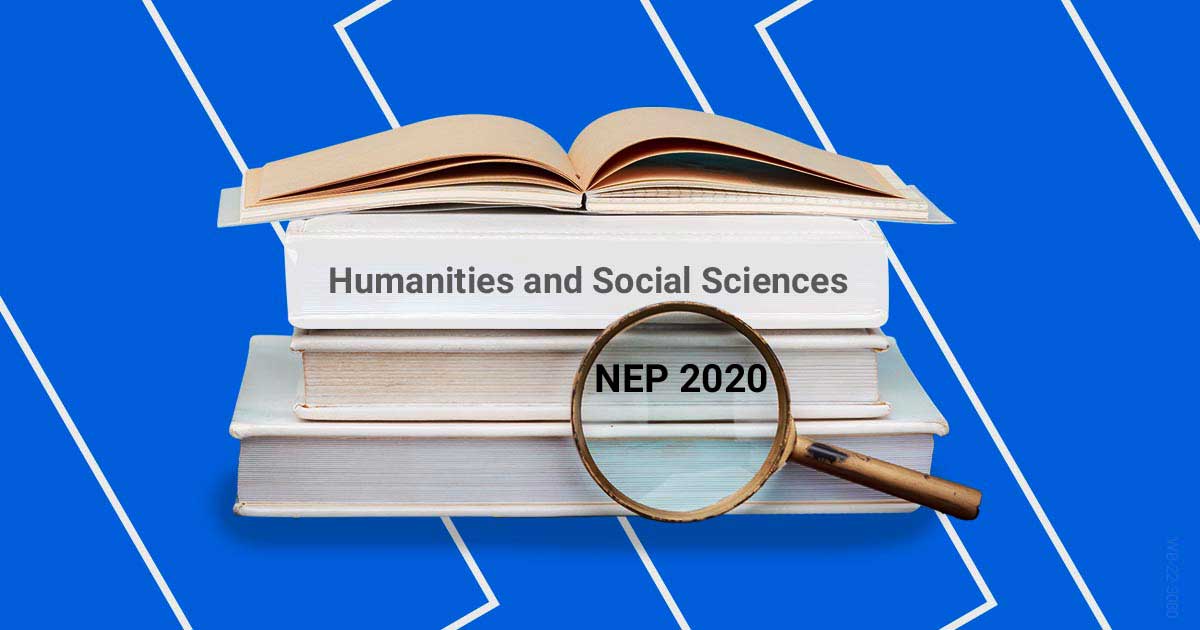
The Union Cabinet of India accepted a 34-year-old policy on education, formed in 1986, to be replaced with a new NEP (National Education Policy) 2020 in a ground-breaking move. Ever since the discussions on NEP 2020 and its impact on various areas have become a significant affair. Following the suit, the Department of English, functioning under the School of Commerce and School of Computer Science and IT of JAIN (Deemed-to-be University), organized a five-day national-level Faculty Development Programme (FDP). The online FDP took place from 28 March to 1 April 2022, under the title Impact and Influence of National Education Policy 2020 on Humanities and Social Sciences. The event had five eminent personalities from various educational institutions in India share their vast experience on the topic.
Day 1 - 28 March 2022
The opening day session had Dr. Ashok Thorat, Founder and Director - Institute of Advanced Studies in English, Pune, as the keynote speaker. He delivered his speech on the Emerging Trends in Research. He said, "Good research is transformative and makes human life more informed and enjoyable." He mentioned that digital humanities promote new ways of thinking and working. In addition to NEP, sustainable development goals, and NRF, he also elaborated schemes such as IMPRINT, IMPRESS, STRIDE, SPARC, etc. which will enhance the emerging scenario in terms of opportunities. He stressed how the NEP 2020 now shows a shift toward production-oriented research in Humanities and Social Sciences.
Day 2 - 29 March 2022
The second-day speaker, Dr. Parul Mishra, Professor - Amity University, Rajasthan, chose the topic National Education Policy on Humanities and Social Sciences in Higher Education for her address. She highlighted the importance of Humanities as propagated in the NEP 2020. Dr. Mishra stressed the significance of the NEP 2020 being specifically benign to the field of critical thinking and Humanities and Social Sciences. The speaker highlighted the importance of languages and multilingualism, particularly the NEP 2020's emphasis on mother tongue in high school education. The conversation then moved on to how students, as stakeholders, will profit from NEP 2020's vision of multilingualism in knowledge transmission, which would cater to all types of students from all types of linguistic variety, rather than the previously dominant language, presumably English. The conversation continued along the same lines with an interactive Q&A session in which registered faculty members discussed the topic with both positive and negative apprehensions. Dr. Mishra's presentation did, in fact, raise a slew of questions that were the foundation of the FDP.
Day 3 - 30 March 2022
The session's keynote speaker was Dr. Manisha Patil, Assistant Professor - Y.C. Institute of Science, Sitara. She delivered her address on Incorporation of Scholarship and Fellowship in the New Educational Policy. In addition to scholarships and fellowships, she also covered topics like visiting fellowships, travel grants, summer schools, summer courses, and publications. She articulated the distinction between a scholarship and a fellowship. Additionally, she also mentioned how to apply for the UGC Grants Commission and gave the funding agents' contact information. She mentioned the Fulbright Abroad Fellowship several times. The discussion was incredibly informative.
Day 4 - 31 March 2022
Ms. Madhurima Nargis, Assistant Professor and Head of the Department of English - Pandaveswar College, Kazi Nazrul University, addressed the session. She spoke on Scope for Teachers in New Education Policy 2020: A Blessing or A Bane? She spoke about a wide range of issues such as the roles and responsibilities of teachers in the current education policy, innovation and technology advancements, the role of teachers, real-world learning, teacher-student involvement, art, and culture.
Day 5 - 1 April 2022
The keynote speaker for the last day session was Dr. Thriyambaka. S., Professor and Research Supervisor - CMR University, Bengaluru. He discussed the emerging trends in research. He spoke about the current education system followed in different fields of education. He shed light on the vision of NEP, the new curriculum, and important skills. He said, “Under NEP pedagogy, there will be an increased emphasis on communication and interdisciplinary thinking.” Then he went on to talk about the current practice of English teachers and the suggested changes that took place in NEP. He emphasized the expansion of the curriculum to include Indian traditions like classical music, classical dance, folk culture, and tribal culture. The session was highly participatory and informative.
